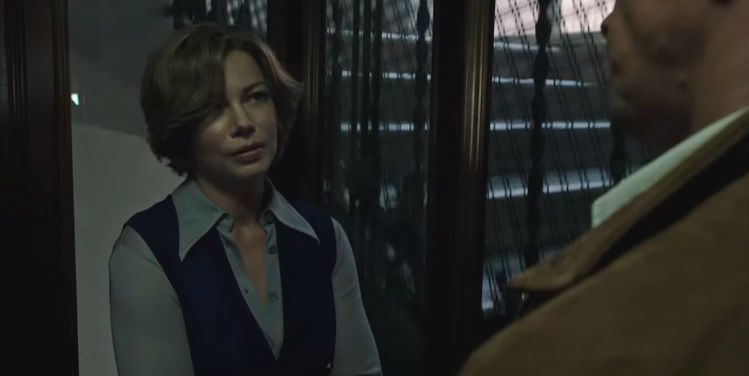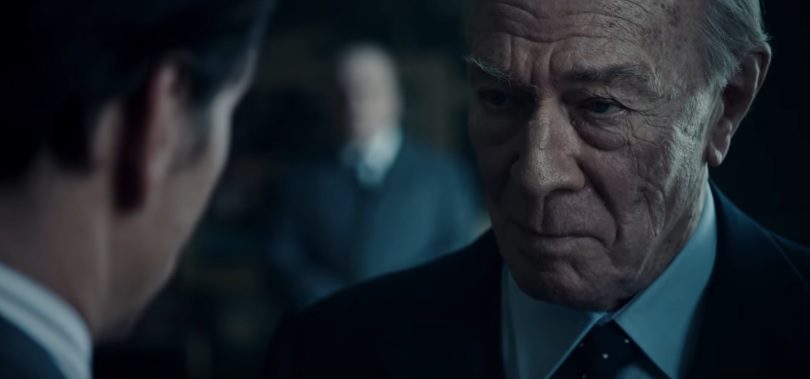SUMMARY
This is AI generated summarization, which may have errors. For context, always refer to the full article.

Ridley Scott’s All the Money in the World opens strangely in lush and luxurious monochrome.
Terse and thrilling
Like a pampered photographer of the rich and famous, cinematographer Dariusz Wolski’s camera follows an elegantly dressed youth (Charlie Plummer) as he frolics past Rome’s most affluent alleyways. The scene slowly bleeds color, and the magnificent city immediately reveals the taint and poverty that lurk in its well-kept shadows. The youth, who is later introduced as the grandson of J. Paul Getty (Christopher Plummer), described as the richest man in history, is seduced by two prostitutes before being taken into a van and brought to some remote spot in Italy.
Scott’s opening is, of course, just a taste of what’s to come. His film’s Rome is far removed from the glamor he conjures in his opening shot. His film’s Rome is inhospitable, at least to Gail Harris (Michelle Williams), the embattled mother of the kidnap victim who has to wrestle with both police bureaucracy and the paparazzi to get her son home.
While All the Money in the World is a terse and thrilling kidnap-and-ransom story, its main draw is the absurdity of what happens behind the scenes.

Gail would’ve had it easy if her unbelievably wealthy father-in-law wasn’t an incurable miser, who couldn’t cough up the ransom to save his grandson if it wasn’t a good deal. Scott mines Getty’s eccentric stance on wealth to depict an all-too-real world, focusing on a story where the economic discrepancy in one family is pitted against a life-or-death situation.
The film gets most of the moral ambiguity right, provoking examinations of how Getty’s philosophies on the value of money has turned into a norm in this age, where the rich have become richer while the poor have become poorer and money trumps humanity.
Williams’ show
All the Money in the World is really Williams’ show.
Mark Wahlberg, who plays Getty’s lackey assigned to keep the mother quiet during the kidnap negotiations, is a miscast. Thankfully, Plummer – an instant replacement for Kevin Spacey who was removed from the film after the sexual misconduct allegations against him spread – is a mesmerizing presence as a seemingly omnipresent being of unadulterated greed. However, it is Williams who provides the film its requisite heart. (READ: Mark Wahlberg donates $1.5 million after pay gap controversy)

While the film can be seen as an examination of how a ludicrous amount of money can will the soul out of a man, it is also a convincing portrait of a woman who has the entire world against her but still succeeds.
Scott, seemingly adamant to convert the true-to-life story to satisfy tension-thirsty Hollywood, also needlessly populates his film with scenes that prolong the narrative to provide a bit of action. All the Money in the World is most entertaining when it retreats from depicting the predictable woes of the kidnap victim and instead, depicts the larger-than-life world of Getty and how his wealth management style has turned him into a well-dressed monstosity.
What could have been

Somewhere in the world, there is a copy of All the Money in the World with Spacey, under inches of makeup and prosthetics to make him look octogenarian, playing Getty with his trademark showmanship. It will most likely enforce a different facet of the famous billionaire, perhaps enunciating the eccentricity that Plummer, with his dedication to subtle gestures and calmness, leverages for ominousness. We might never know what the film could have been.
It doesn’t matter. All the Money in the World, as it is, is fine. – Rappler.com

Francis Joseph Cruz litigates for a living and writes about cinema for fun. The first Filipino movie he saw in the theaters was Carlo J. Caparas’ Tirad Pass. Since then, he’s been on a mission to find better memories with Philippine cinema.
Add a comment
How does this make you feel?
There are no comments yet. Add your comment to start the conversation.